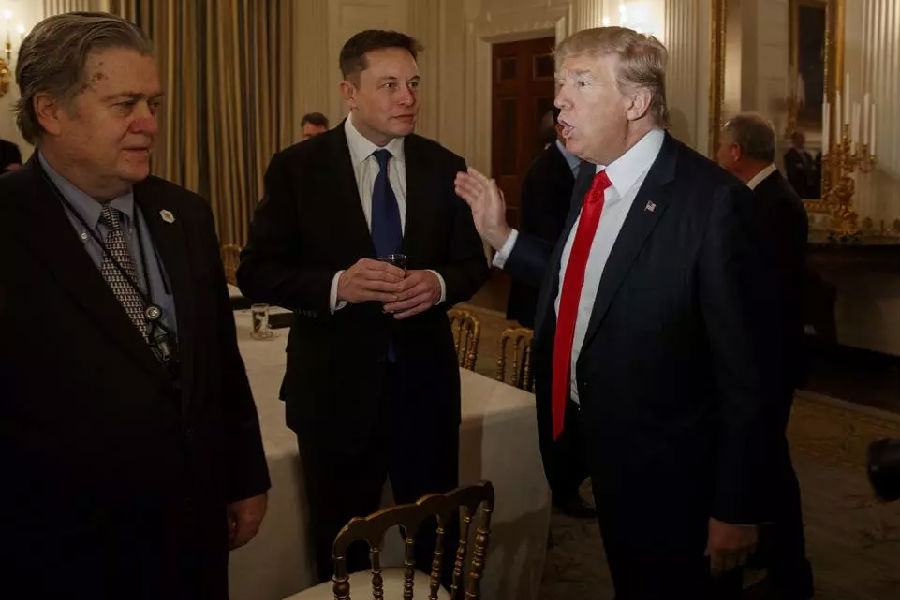One would think that as high-tech companies excised workers from the economy, they would at least treat those they continue to employ with some consideration. But Silicon Valley’s famous table tennis and smoothies perks don’t extend to the blue-collar jobs in the region. Reports have detailed how Tesla workers have faced safety risks (including injuries that the company didn’t properly report), excessive hours (Red Bulls were reportedly handed out to workers to keep them on their feet) and filthy conditions (some workers allegedly had to move through a raw sewage spill to keep the assembly lines going). The United Auto Workers has accused Tesla of union-busting tactics, and in March the National Labor Relations Board filed a second complaint against the company.
有人會認(rèn)為,高科技公司隨著經(jīng)濟(jì)發(fā)展不再需要人類員工,至少會對那些繼續(xù)聘用的員工有所考慮。但硅谷著名的乒乓球和果汁福利并不包括該地區(qū)的藍(lán)領(lǐng)工作。報(bào)告詳細(xì)描述了特斯拉員工如何面臨安全風(fēng)險(xiǎn)(包括公司沒有正確報(bào)告的傷害),工作時(shí)間過長(據(jù)報(bào)道,公司給工人分發(fā)紅牛以便保持站立),以及骯臟的環(huán)境(據(jù)稱,一些工人不得不穿過未經(jīng)處理的污水溢出處,以維持裝配線的運(yùn)轉(zhuǎn))。美國汽車工人聯(lián)合會指責(zé)特斯拉采取破壞工會的策略,今年3月,美國國家勞資關(guān)系委員會對該公司提起了第二起訴訟。

Such erosion of labor standards and job displacement is a concern across all of America’s industries, of course. But high-tech companies are making the displacement of humans a central mission and executing it with stunning efficiency. “Silicon Valley could be a big contributor to a manufacturing rebirth in the U.S.,” says Chuck Darrah, an anthropology professor at San Jose State University in the heart of valley who studies the region’s high-tech industry. “But so much of it now is about automation, and the price of robots in the U.S. is pretty much the same as in China and Mexico.”
當(dāng)然,這種勞動標(biāo)準(zhǔn)的下降和工作崗位的流失是美國所有行業(yè)都關(guān)心的問題。但高科技公司正把取代人類作為一項(xiàng)核心任務(wù),并以驚人的效率執(zhí)行這項(xiàng)任務(wù)。“硅谷可能是美國制造業(yè)復(fù)興的重要貢獻(xiàn)者。位于硅谷中心的圣何塞州立大學(xué)研究該地區(qū)高科技產(chǎn)業(yè)的人類學(xué)教授查克•達(dá)拉表示。“但現(xiàn)在很多都是自動化,美國的機(jī)器人價(jià)格與中國和墨西哥差不多。”
In other words, labor may be cheaper overseas, but robots aren’t, so why not just replace workers with smart machines and build it here?
換句話說,海外勞動力可能更便宜,但機(jī)器人不是,所以為什么不干脆用智能機(jī)器取代工人,在這里生產(chǎn)呢?
So where does that leave American workers who lose their jobs? Many of Silicon Valley’s successful insiders favor a “universal basic income” scheme, in which the government would send everyone in America a monthly check for around $2,000. “People here understand that if they can’t find a solution to the job loss they’re causing, they could face a civil uprising,” says ResetSecurity’s Lackey. “They’re so worried about it that they’re also buying houses in the middle of nowhere, like New Zealand or Wyoming.”
那么,那些失去工作的美國工人該怎么辦呢? 許多硅谷成功的內(nèi)部人士支持一項(xiàng)“普遍基本收入”計(jì)劃,在該計(jì)劃中,政府每月給每個(gè)美國人發(fā)一張大約2000美元的支票。ResetSecurity公司的拉基說:“這里的人們明白,如果他們無法找到解決失業(yè)問題的辦法,他們可能會面臨一場國內(nèi)起義。他們非常擔(dān)心這個(gè)問題,甚至還在新西蘭或懷俄明州等偏遠(yuǎn)地區(qū)買房。”
譯文由可可原創(chuàng),僅供學(xué)習(xí)交流使用,未經(jīng)許可請勿轉(zhuǎn)載。












